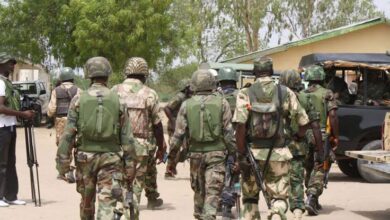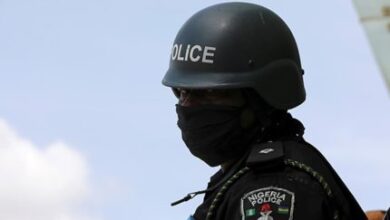Peter Obi Suspends Public Activities Over Health Concerns

The Federal Government has stepped up health surveillance at all points of entry into Nigeria as the Democratic Republic of Congo (DRC) battles a fresh outbreak of the deadly Ebola Virus Disease (EVD).
The Director of Port Health Services at the Federal Ministry of Health and Social Welfare, Dr. Akpan Nse, confirmed that Nigeria has reactivated strict monitoring systems across airports, land borders, and seaports.
He explained that every traveler entering Nigeria from the DRC would be subjected to thorough medical screening and mandatory health history checks.
“We have intensified surveillance at all points of entry across the country. Every inbound traveler from Congo is screened, and even those transiting through the country are not exempted. This measure is necessary to block any possible importation of the virus,” Nse stated.
To further strengthen border control, the ministry has recruited additional staff with support from the World Health Organization (WHO).
Private organizations have also partnered with the government to ensure that thermal scanners at airports remain fully functional.
Health authorities in the DRC declared an Ebola outbreak in Kasai Province after 28 suspected cases and 16 deaths were reported, including four health workers, as of September 5, 2025. Laboratory tests confirmed the Zaire strain of the virus, the most lethal variant.
This marks the country’s 16th outbreak since Ebola was first discovered in 1976. Previous outbreaks in Kasai Province occurred in 2007 and 2008, while the most recent nationwide outbreak was in Equateur Province in 2022.
The fresh crisis in Congo comes at a time when several African nations are already grappling with cholera, malnutrition, and humanitarian emergencies.
WHO Director-General, Dr. Tedros Adhanom Ghebreyesus, announced that the organization had released $500,000 from its Contingency Fund for Emergencies to support the DRC’s Ebola response.
He confirmed that rapid response teams are already on the ground in Kasai Province to trace contacts, test samples, and provide treatment support.
WHO has also deployed protective equipment, medical supplies, and a mobile laboratory. In addition, 2,000 doses of Ebola vaccine stored in Kinshasa are being used to protect frontline health workers and contacts of confirmed cases.
Nigerian health experts have urged the government and the public not to relax in their preventive measures.
Dr. Oladipo Kolawole, an Associate Professor of Infectious Diseases at Adeleke University, stressed the need for coordination across ministries and agencies.
“We must ensure that our surveillance system is watertight. Based on our past experience with Ebola, I believe Nigeria has the structure to respond effectively if needed,” he said.
Virologist Dr. Moses Adewumi of the University College Hospital, Ibadan, also emphasized the importance of early detection. He warned that weak border control could expose communities to imported cases.
“Travel cannot be stopped, but screening must be very strict. Early detection is the key to prevention,” he said.
Dr. Iorhen Akase, Head of the Infectious Diseases Unit at Lagos University Teaching Hospital, added that the real danger arises only when infected persons become symptomatic.
He encouraged Nigerians to report any suspicious illness in their communities immediately.
Ebola is one of the deadliest viral diseases known to man, with case fatality rates reaching up to 90% in some outbreaks. The virus is spread through direct contact with blood and bodily fluids of infected people or animals.
Nigeria’s swift action at this early stage is expected to reassure citizens and prevent panic.
Experts believe that with strict surveillance, community vigilance, and cross-border cooperation, the country can shield itself from the growing crisis in Central Africa.
Post Views: 71





